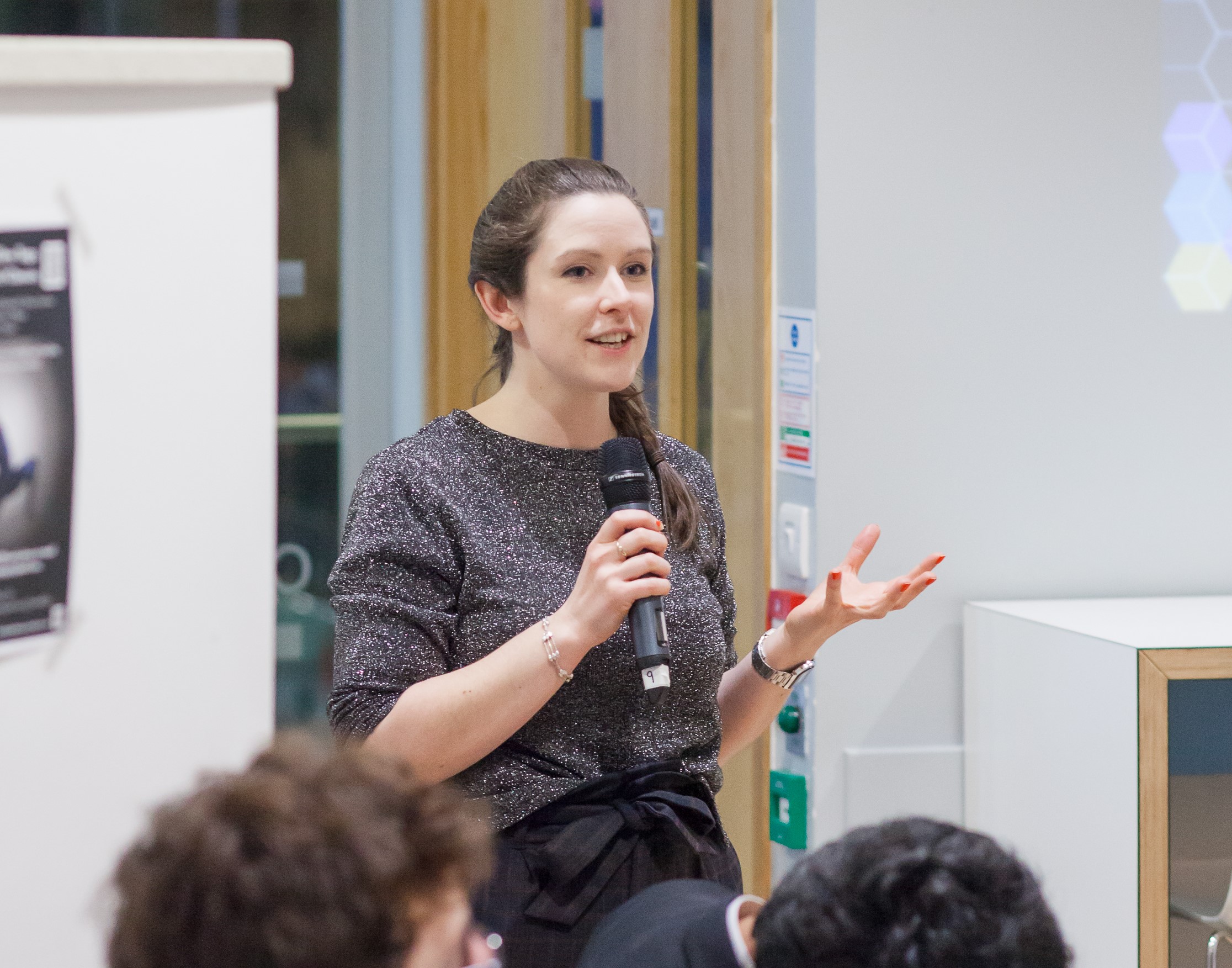Madeleine Morris, Research Associate at Grantham Institute at Imperial College London
What is your current role at your Institution?
I’m a Postdoctoral Research Associate at Imperial College London, based at the Grantham Institute – Climate Change and the Environment. This is one of Imperial’s six ‘global institutes’ created to address some of the most important issues facing the world today.
Within EnergyREV, I sit within the ‘Institutions’ theme researching policy, regulatory, market and innovation frameworks through the lens of smart local energy systems. Most of my work has involved mapping the current policy and regulatory landscape, finding issues and gaps, with a view to understanding how governance should look in a future where the energy system fits into a net-zero emissions world.
I also lead the recently launched Governance Insights Lunchtime Seminar Series, a monthly discussion platform set up to bring together people interested in policy, regulation, market design and innovation frameworks relating to smart local energy systems.
How does this role build on previous work?
My career choices have always been primarily driven by concerns about the climate crisis. Prior to this post, I was a PhD researcher in the Centre for Processable Electronics, also at Imperial College London, where I worked in the Department of Chemistry researching novel materials for solar energy conversion, mostly looking at solar-driven water splitting to produce hydrogen (photolysis).
During my research, where I spent many of my days in a basement laser lab trying to understand how electrons behave when you shine light on different materials, I realised that the ‘front line’ of climate action is no longer in the lab; we have a lot of the technologies that we need to reach the 2050 target of net zero greenhouse gas emissions, but there are still issues with our decision-making processes when it comes to integration of these technologies into the energy system. That’s when I decided to switch my focus to energy policy and regulation, with an aim to understand how we can make better decisions that mean that the UK can meet its climate targets.
What is the most exciting thing about the research that you have done to date?
My research into energy policy and regulation has opened my eyes to just how much impact the energy system – including electricity, heat and transport – has on our everyday lives, and how flawed the energy system currently is; there are around four million households in the UK who live in fuel poverty, which is associated with thousands of deaths every year. For me, the energy revolution is about more than reducing carbon emissions: It’s about improving public health, reducing societal inequities, restoring the environment and making the UK an overall better place to live.
EnergyREVs policy team regularly engage with policymakers and industrial partners to discuss what decisions need to be made to put us on track to meeting climate goals and capturing as many benefits as possible. I find it incredibly motivating to work at the interface between academia, policy and industry – there are so many incredible people driving this transition forward.
What skills and perspectives are you bringing to EnergyREV?
I joined EnergyREV with very little understanding of how the UKs energy system worked. The experience has been a huge learning curve for me but has meant that I could bring a fresh and unbiased perspective, enabling me to ask lots of questions!
The policy and regulatory landscape is incredibly dense and complex – I’ve got the technical and research skills to make (some!) sense of it, but my ‘non-expert’ status means I have to translate the implications into more understandable terms, whether that’s through written reports, or through presentations and in meetings with stakeholders. I also have a keenness for public engagement and lots of experience of science communication. I’m working on applying those skills to my policy work.
We won’t achieve a successful energy transition without public support, so it’s vital that we engage people throughout the entire decision-making process. A Grantham Institute colleague and I have designed an activity which ‘gamified’ the policymaking process in the context of decarbonising transport. We ran the game at an Imperial Lates event and it was fascinating to hear members of the public discussing different policy options and how they would impact their lives. I’d love to hold this kind of activity with both policymakers and the general public and see what decisions get made!
